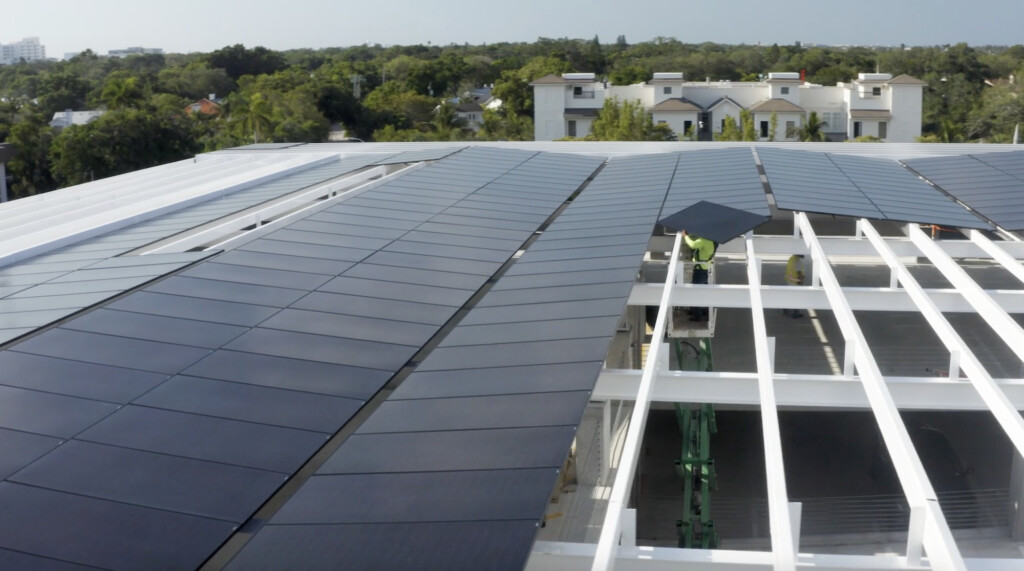Marie Selby Botanical Gardens in Sarasota, Florida will become the world’s first net-positive botanical garden complex when it turns on its new solar panels this week.
Selby Gardens, which is already home to the world’s first net-positive restaurant, will switch on 50,000 square feet of solar arrays on 27 June.
The solar project is part of a three-phase, $52 million expansion plan for the botanical garden’s downtown Sarasota campus.
“The activation of the solar arrays marks a turning point in our commitment to sustainability and innovation as leaders in ecological stewardship,” said Jennifer Rominiecki, president and CEO, Marie Selby Botanical Gardens.

When the switch flips on the 2,158-panel solar arrays, the clock will start ticking on a 12-month monitoring period to show the new facility produces more power than it consumes.
John Byrd of Overland Partners, a building architecture firm recognised as an authority in sustainable design, said the project sets “a benchmark for botanical gardens everywhere”.
“This landmark project elevates not only Selby Gardens, but Sarasota itself beyond a prime beach destination to a beacon of leadership in sustainable design worldwide,” Byrd said.
The solar network is located on top of a landscaped parking structure at Selby Gardens’ Living Energy Access Facility (LEAF). This also contains the net-positive Green Orchid restaurant.
Ecological stewardship
The new installation is joined by an additional 7,000 square feet of solar arrays at Selby Gardens. Together, the 57,000-square-foot network will produce enough energy per year to power 175 average American homes.
Patrick Attwater, CEO of One80 Solar, which developed, engineered, and constructed the solar network, said: “This project will not only save Selby Gardens‘ ever-rising electric costs for decades, but will also prevent pollution and greenhouse gases from entering the atmosphere.
“It’s equal to the carbon sequestered by a thousand acres of forest.”
Images courtesy of Marie Selby Botanical Gardens
The post Selby Gardens to become world’s first net-positive botanical garden complex appeared first on Blooloop.